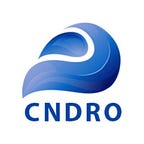What is a Data Lake?
A data lake is a location where data is stored in an unprocessed/raw format, usually, object blobs or files. The term “lake” refers to the fact that data is neither transformed nor structured when it is first ingested into the repository. Data lakes are distinguished from traditional data warehouses in that they can store any data regardless of its structure, and they do not require transformation or schema creation before ingestion. Data lakes are often used for advanced analytics and machine learning workloads.
The key advantage of a data lake is that it enables organizations to store all of their data (structured, unstructured, and streaming) in one place for easy access and analysis. Data lakes are also highly scalable, accommodating growth as an organization’s needs evolve.
Another advantage of data lakes is that they can be less expensive to build and maintain than traditional data warehouses. This is because data lakes require a different level of upfront planning and preparation than data warehouses. In a data warehouse, extensive modeling and definitions are needed before any data can be loaded into the system. Whereas, a data lake can be created relatively quickly and cheaply using open-source technologies.
